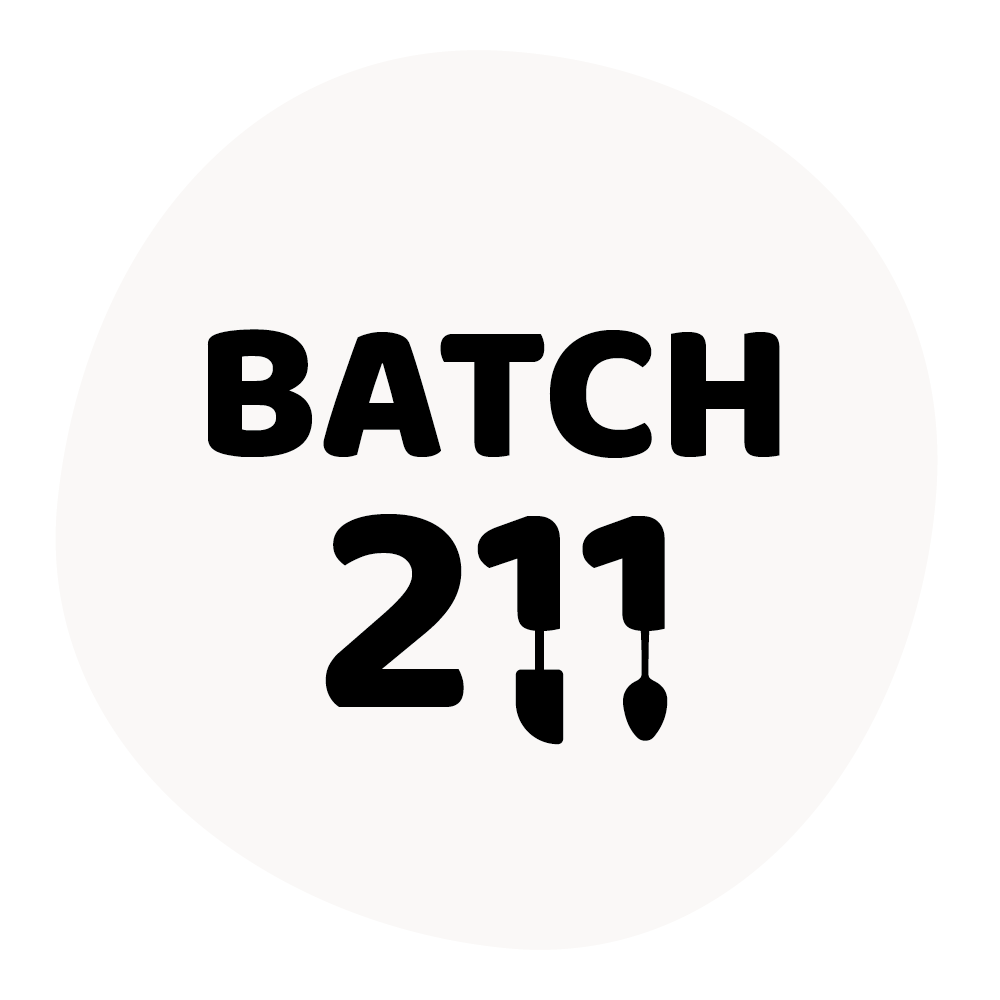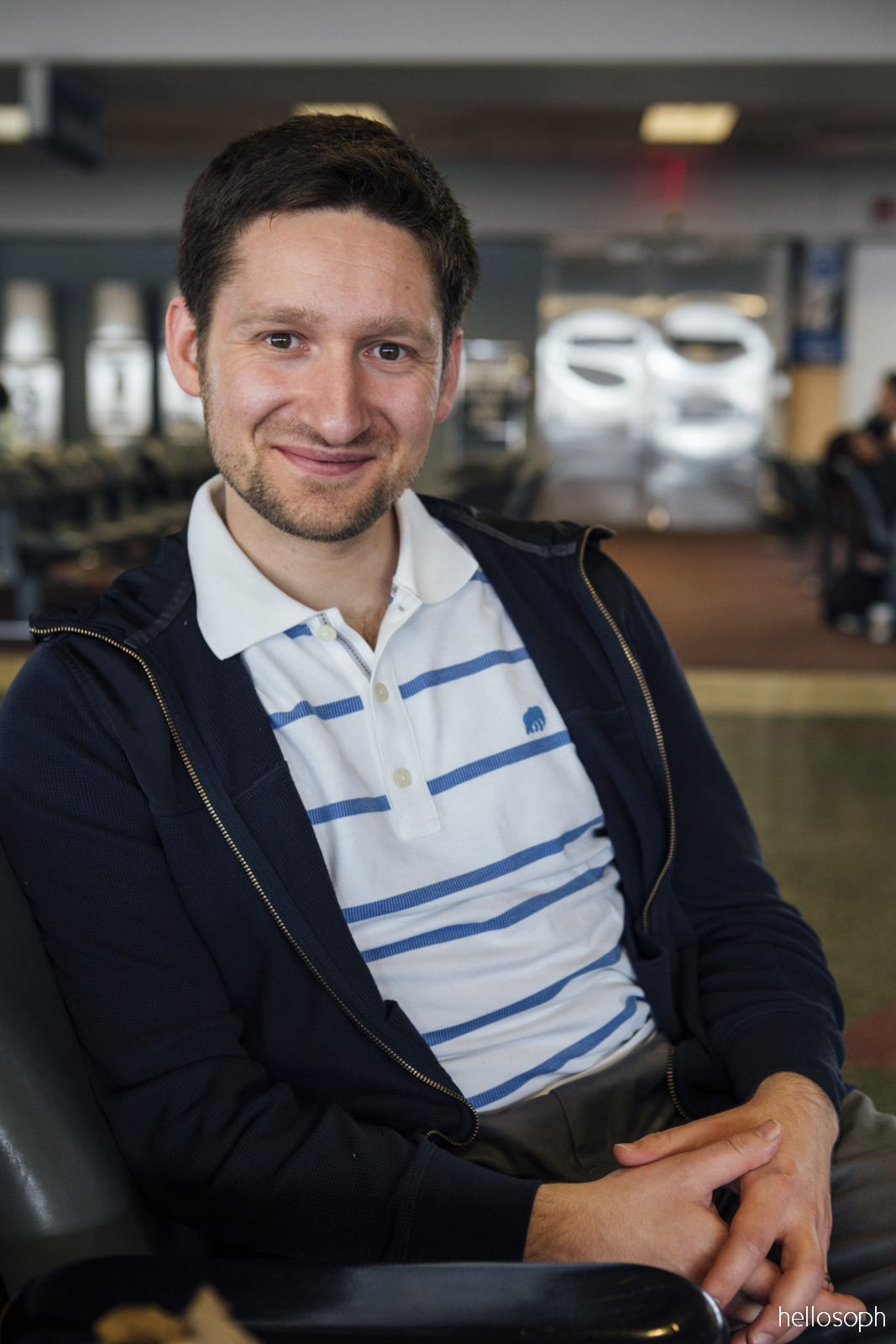“Well, I’m here on the way to a wedding. I’m travelling through Boston because I live in New York. My wife and I are going to a cousin’s wedding. I’m a teacher. I teach elementary school and high school. I teach a little bit of everything because I work at a religious school.
I’m going to a conference about helping people talk about their Jewish identity. So [I’m] presenting this presentation about the Brooklyn Bridges, something that’s built by multiple groups of people and just try to figure out how to do it. So it’s gotta be six minutes. It’s this very Japanese kind of presentation called Pecha Kucha, which is 20 slides. And you’ve 6 minutes and 20 seconds to present 20 slides. So you really have to figure out in its time.
For me, [identity]’s a lot about culture and understanding a culture that doesn’t live at one space at one time. So it’s a bit of understanding what it means to be a minority. And sometimes about understanding what it means to be connected to other people who might not look like you but also have a similar identity. Meaning like, there are Jews all over the world that identify as Jewish. Creating a community from people from that is challenging, so you have to be very aware. Literate – you have to learn how to read languages and stuff like that. But you also have to learn how to listen. And talk to people.
I grew up in Boston. There’s a lot of Jews in Boston, but you’re always a minority, so you have to be aware of what it’s like to be a minority in a majority culture. I don’t think it was different for me. It was probably more different for my parents because they grew up in a very small Jewish community. It wasn’t that they were persecuted – but they always knew that they were different. Like when holidays came around, or when like you have to go to special schools. A lot of them changed their names because it wasn’t okay – they couldn’t get jobs because of their Jewish names. So yeah, my grandfather changed his name. So for me, it’s important to talk about your identity and also know that other people don’t necessarily do the same thing. You know, I keep kosher, so I have to explain that to people a lot of the time when I go out.
It’s something you have to practice doing. It’s like anything else, if you want to do music or photography, you have to practice a lot. And if you want to be, understand yourself and your identity, and learn how to express that, you have to practice. You have to learn, and you have to be taught. Like I want to be a teacher because I want to help people not just feel comfortable, but feel in control of that. Because I think otherwise, that identity dies. Like when I work with kids who are 13 and 12 at a bar mitzvah, you’re challenging them to use something they may not use in their day to day life. And it helps them understand themselves a little bit better. It also helps you learn a little bit about other cultures.
Essentially, when they go to a service that they’re going to become a bar mitzvah, they have to read prayers, and lead parts of a service, and read from the Bible in Hebrew. So there’s a lot of, teach them how to read from the Bible and sing. Often times, because you chant it, it’s not read. Most of the kids, or at least the kids I work with, you have to think about lessons that, not just lessons that you’ve learned reading something, but what was it like for people who wrote the Bible. What were they thinking about and struggling with, and how does that relate to the world that we live in now? There’s a lot of community history and national history, so there’s a lot of work: taking everything into context of their lives and the lives of our people. And you know that it might feel mythical and disconnected, but they like really get to know it by finding themselves in that story.
I’ve taught at a lot of different places. I’ve taught at summer camps. I taught, like, little kids how to read. And um, math. I tutor kids in music and stuff too. So I’ve worked with kids since I was a teenager. I love it. There’s nothing like it. ‘Cause kids always tell you the truth. Even if they’re trying to lie, they have no reason to hide things. And they want to learn. They’re just naturally curious, and I love having that be fun. You can gain so much about the world by learning, and it’s the best way to make the world a better place by learning more. I always think that. Just really thinking about having fun in the best way possible and learn something at the same time. So I just decided at one point, why not just become a teacher.
I work really hard, and I’m never home, but I love it. It really brings me a sense of fulfillment to know that you had a good connection with somebody who’s a kid. You hope that they’ll come up and take what you teach them seriously at some point, and that they find meaning in it, find it useful. And then do it themselves.”
Excerpt may be edited for clarity.

